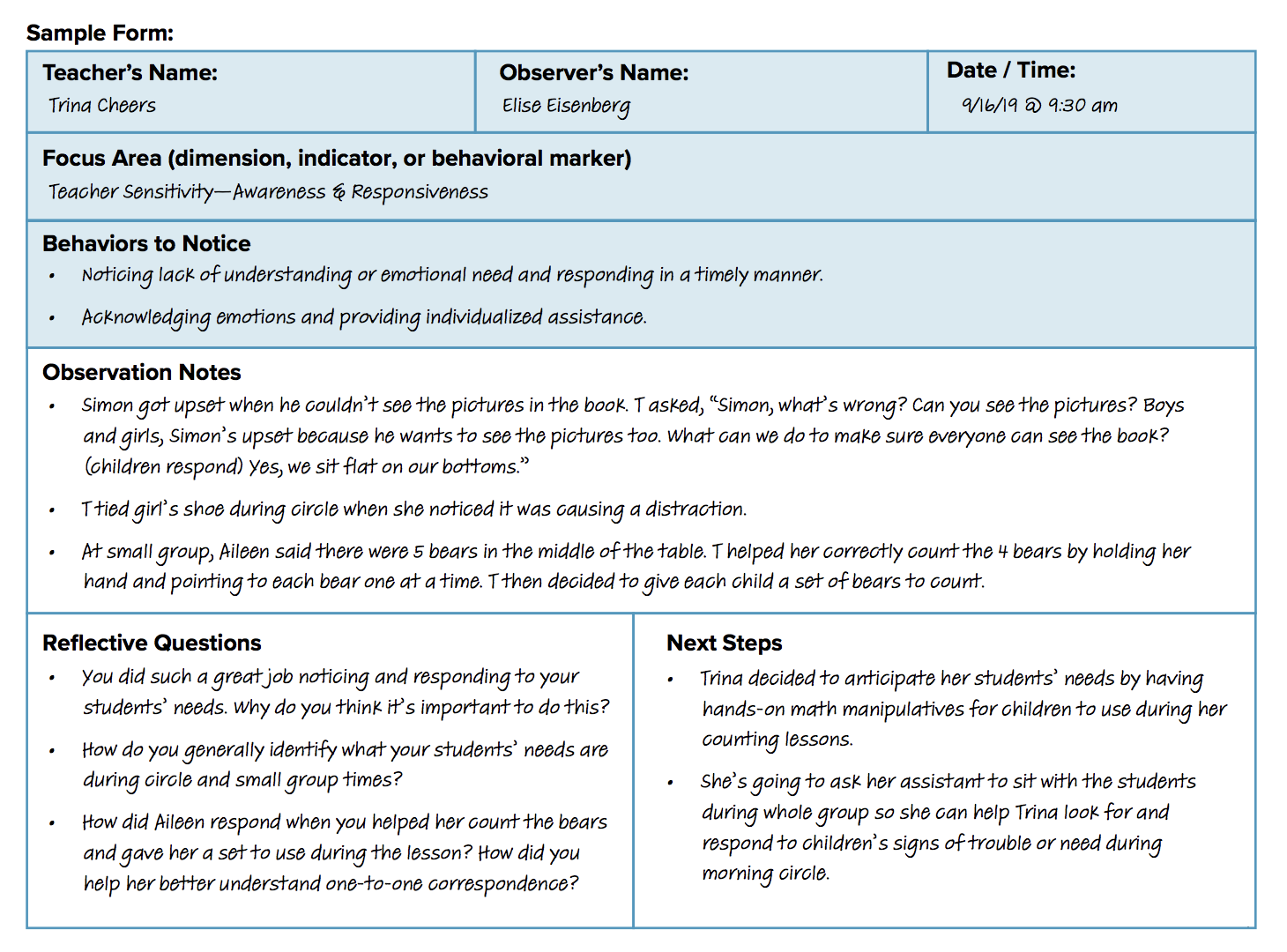
Even top athletes rely on the support of a coach to improve their game. Players need coaches to help identify their unique strengths and grow their talents while increasing their skills in areas of challenge. To do all this, coaches spend lots of time observing athletes while they practice—giving real-time feedback based on current efforts, breaking skills down as needed to cultivate mastery, and encouraging players to keep trying in pursuit of their goals.
Just as athletic coaches support players in mastering their game, educational coaches support teachers in mastering the craft of teaching. And just as athletic coaches need to spend time on the court and in the field, educational coaches need to frequent their teachers’ classrooms, observing teachers as they practice specific teaching behaviors and giving supportive feedback based on those efforts. Teachers need real-time, in-the-field support that is grounded in their current practice. This type of ongoing support is made possible with routine informal observations.
What are Informal Observations?
Informal observations are very different from formal CLASS observations, which require certification, official score sheets, and codes to be assigned for each cycle. An informal observation is conducted by a coach, and is an opportunity for the coach to focus exclusively on the behaviors a teacher is currently practicing, for the total 10-30 minutes of observation.
The coach collects specific, objective evidence about what the teacher is saying and doing and how the children respond in the moment. Then, the coach meets with the teacher to share notes, discuss strengths, and identify effective behaviors. Together, the coach and teacher discuss how to make effective interactions even better, even longer, and even more frequent, planning ways the teacher can have these interactions with more children. They then create an action plan for classroom practice and plan a time for the coach to conduct another informal observation with feedback, thus continuing the teacher’s learning cycle.
Using the Informal Observation Form
Before conducting the short classroom visit, the teacher and coach should decide together what the focus of the informal observation will be, and when the observation should take place. During the observation, the coach should use the form to take detailed, moment-to-moment notes focused on what the teacher did and said and how the students responded to specific types of interactions. The coach should note examples of effective moments, and may also include some opportunities for growth.
After the observation, the coach should take a few minutes to plan questions to help the teacher reflect on his/her practice and the children’s responses, eliciting thoughts on why effective interactions are important and how they support children’s healthy social, emotional, and cognitive development. Finally, the teacher and coach should meet briefly for a collaborative discussion about the observation, reflection questions, and next steps.
Here’s an example of how the Informal Observation Form might be used:

Reflecting and Collaborating with Teachers
Reflecting on our work with someone else is a vulnerable activity. It takes a positive, trusting teacher-coach relationship (and lots of coach sensitivity) to inspire teachers to take the risk of sharing their honest reflections, ideas, and opinions. In order to make the most of the limited time they have with a teacher, coaches should take time to plan which notes they will share (focusing on examples of one or a few behavioral markers) and identify reflection questions.
During the post-observation conversation, teachers should be asked “why” and “how” questions and given opportunities to brainstorm and plan strategies to further improve specific interactions, focusing on making these interactions longer, deeper, and more frequent. Coaches should repeat and extend the teacher’s ideas and scaffold next steps to promote the teacher’s successful practice of new and enhanced teaching behaviors.
Teachers need support in their classrooms in the same way that athletes need support while practicing their sport. The classroom is a teacher’s arena, and teachers need coaches on the field with them as they practice new plays and try out new behaviors. Teachers deserve real-time feedback about their efforts, what areas of their practice are working, and what areas might need more time to develop. Most importantly, teachers need coaches to help them understand why what they are practicing matters and how it positively impacts their students.
Our Informal Observation Form was created to support coaches in doing just that. So print the form, grab a pencil, and put on your favorite jersey. You’ve got a practice to coach!

